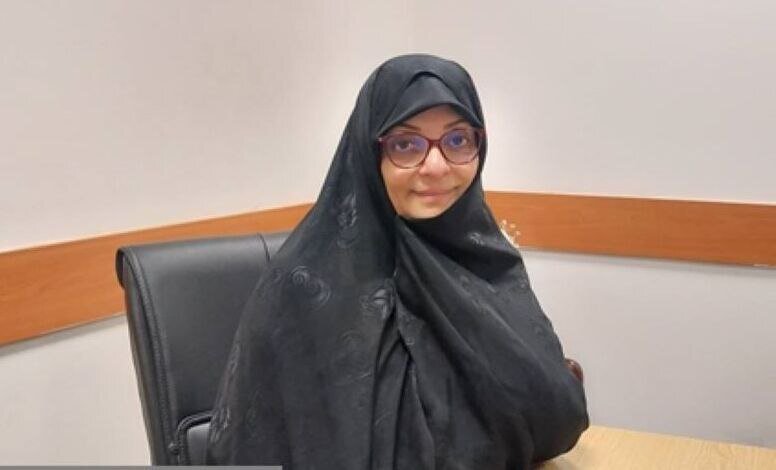Iranian woman appointed as RPC chairperson for Eastern Mediterranean

TEHRAN – Farah Babaei, the head of the Midwifery Department of the health ministry, has been appointed by the International Confederation of Midwives (ICM) as the new Chair of the Eastern Mediterranean Regional Professional Committee (RPC).
The Eastern Mediterranean RPC is one of the regional structures of the ICM, which is responsible for directing, organizing, and coordinating professional activities in the regional countries.
Babaei has over 35 years of professional experience in midwifery, including 17 years in leadership of the Midwifery Department, IRNA reported.
Since 1922, ICM has brought together professional organisations of midwives across the world to unite and uplift each other to achieve ICM’s vision and mission.
ICM provides member associations (Mas) with exclusive benefits, including professional development, networking, leadership, and governance support. It helps Mas advocate for improvements to midwifery education, regulation, and service provision. ICM also connects Mas in humanitarian situations to donors and support organisations.
RPC is part of ICM’s broader effort to strengthen midwifery associations and enhance midwifery practice across its six regions.
The ICM divides the world into six regions to better address the specific needs and challenges of midwives in different parts of the globe.
The committees also help communicate and implement ICM’s work plans related to strengthening midwifery education, regulation, research, and practice within their regions.
Iranian women's share in science
The status of Iranian women in various fields has improved after the Islamic Revolution, and women, as half of the country’s population, have been leading in many fields.
After the victory of the 1979 Islamic Revolution, women were given equal rights to shape their futures. The Islamic Revolution provided them a chance to build their distinct identity, and they have been tremendously successful in doing that.
There were extensive changes in the fields of science, education, economy, employment, and the presence in management positions for women. Now, a large part of activists in various fields of academia, business, and management are made up of capable Iranian women.
Education as a social value for women is seen as real freedom for them. Illiteracy among women and girls has been nearly eradicated as the literacy rate reached 99.3 percent, and the ratio of female to male students has increased by 28 percent.
According to the latest data, nearly 60 percent of all university students are female today. The percentage of women in higher education has increased nearly 21 times since the Revolution.
The notable presence of women in the education sector has had a remarkable impact on the job market of the country as well, with women taking more jobs in both the public and private sectors.
The country has always underscored the economic, cultural, social, and political empowerment of women as a key element in policy-making, legislation, and national planning.
Currently, more than 70 women are acting as vice president, minister, spokesperson, and other key positions in the government, and four women hold top managerial positions in the cabinet, namely transport and urban development minister, Farzaneh Sadeq, government spokesperson Fatemeh Mohajerani, Department of Environment head, Shina Ansari, and vice president for women and family affairs, Zahra Behrouz-azar.
Also, female scholars constitute 665 out of 4,818 most-cited researchers in the country, more than 13 percent of the total.
In the past Iranian calendar year (March 2023 – March 2024), women accounted for 12.75 percent of the most-cited researchers. With a 29.57 percent share, the Ministry of Health has the highest number of the most-cited female researchers.
According to the recent report of the Islamic World Science Citation (ISC), a total of 177 Iranian female researchers have been recognized in the areas of Agricultural Sciences, Clinical Medicine, Biology, Biochemistry, Chemistry, Pharmacology and Toxicology, Neuroscience and Psychology, Engineering, Material Science, Psychiatry/Psychology, Computer Science, Physics, Molecular Biology and Genetics, Social Sciences, Generalities, Physics, Plant and Animal Sciences, Immunology, and some have obtained the necessary points even in several fields.
In Iran, women account for more than 24 percent of inventions in the country, compared to the global average of 17 percent.
Having made great strides in manufacturing high-tech products and growing the knowledge-based economy, Iranian women are conveying to the world the message that they have the potential to shine in the field of ‘technology’, the same as in other fields. They have managed to shine brilliantly in different global events, showcasing Iranian women’s abilities to the world.
The percentage of female CEOs and chairpersons of the board of directors of knowledge-based companies has increased noticeably over the past three years. The number of female managers has almost doubled, rising from 1,092 in the Iranian calendar year 1400 (2021-2022) to 2,250 by the end of the first nine months of the current Iranian year that started on March 20, 2024.
MT/MG
Leave a Comment